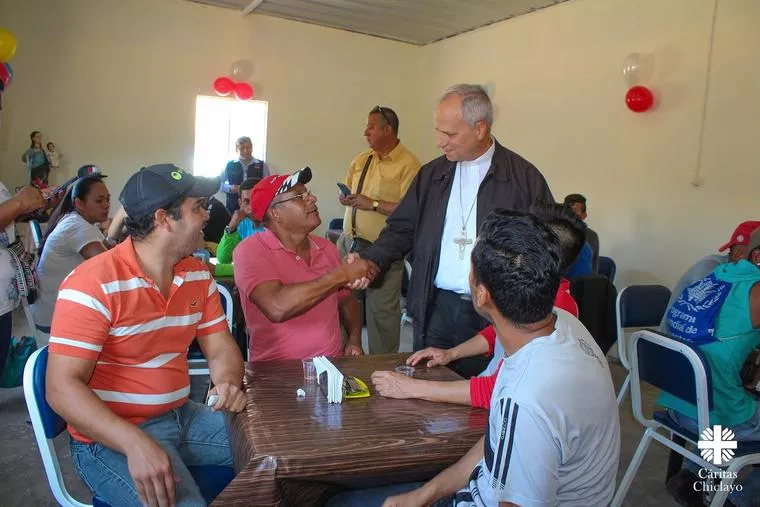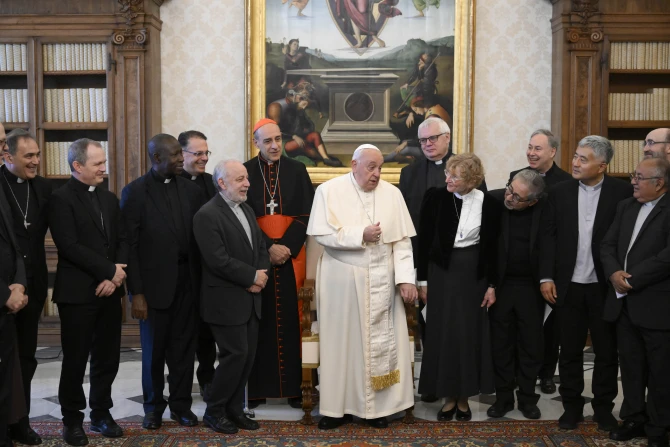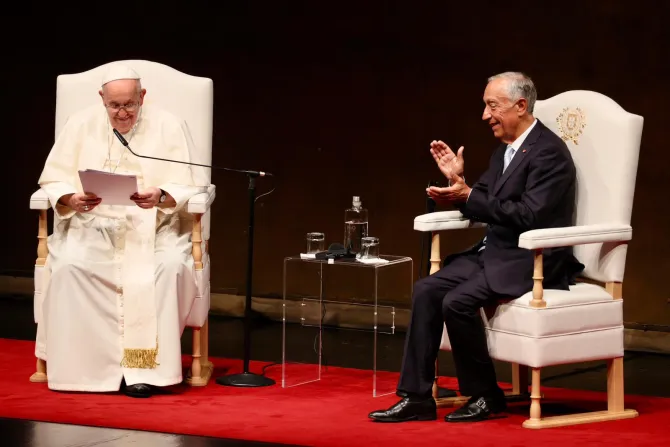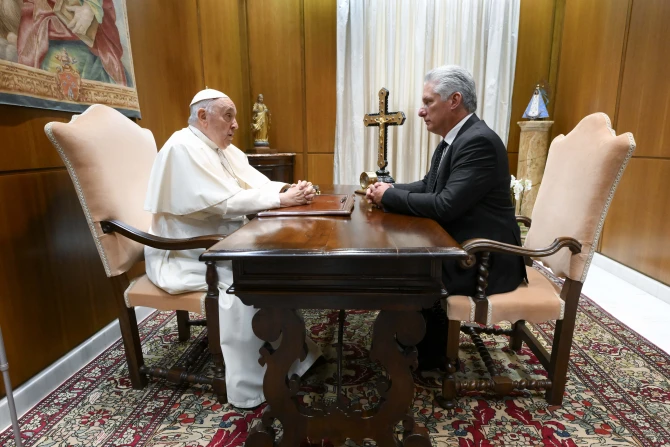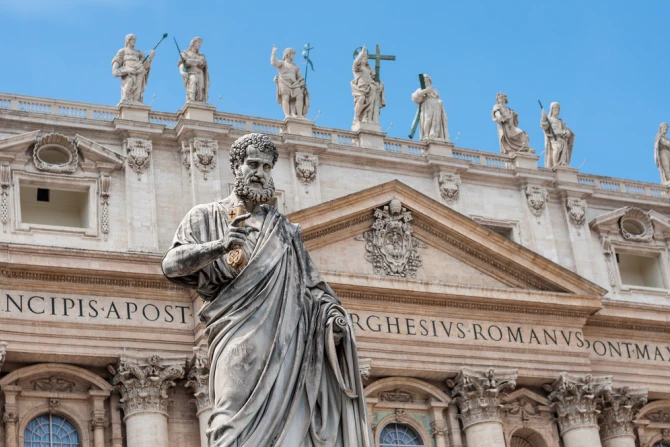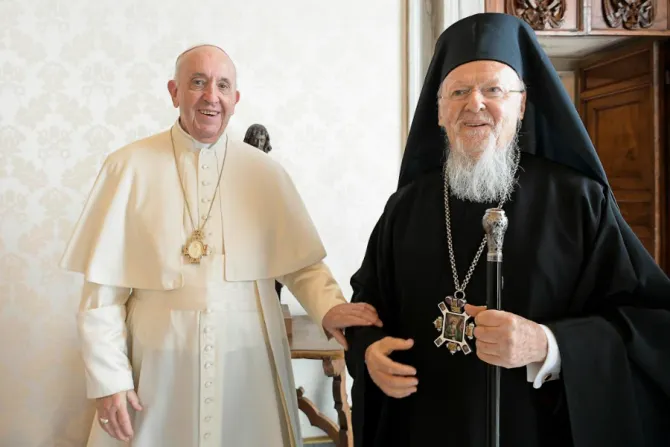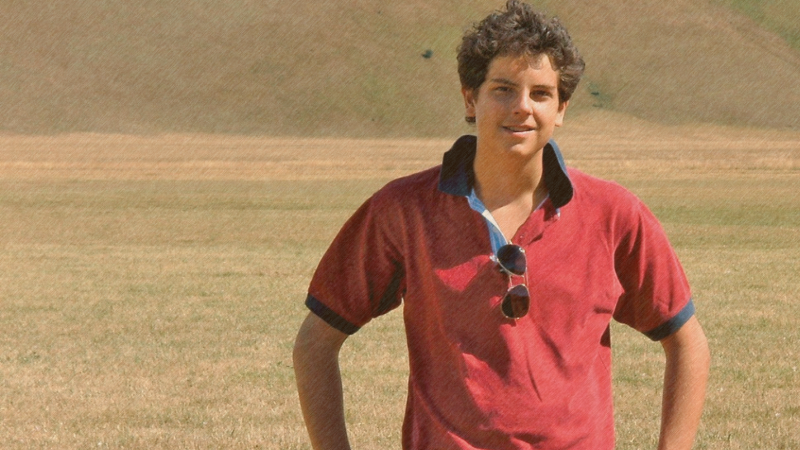By Matthew McDonald
The U.S.-born pope spent about a dozen years as a missionary in Peru and returned there later to serve as a bishop.
SIGN UP FOR OUR NEWSLETTER HERE
Is Pope Leo XIV the first missionary to become pope since St. Peter?
Some historians argue the point — more on that below — but all agree that his experience as a foreign missionary is a rarity in a new bishop of Rome.
And it seems to be shaping his priorities right from the start.
Pope Leo XIV mentioned forms of the word “missionary” twice on the balcony overlooking St. Peter’s Square shortly after his election. He called on Catholics “to proclaim the Gospel without fear, to be missionaries.”
And later, he said: “Together, we must look for ways to be a missionary Church.”
Though he is the first native of the United States to become pope, then-Father Robert Prevost spent about a dozen years in two stints as a missionary in Peru (1985-1986 and 1988-1999) before being elected prior of his province in the Order of Saint Augustine.
He returned to Peru a third time in November 2014 when Pope Francis named him administrator and later bishop of the Diocese of Chiclayo.
In between, he served as head of his religious order, for which he traveled around the world.
His experience as a priest and bishop, therefore, is not just in his native country and not just in Rome.
“I think that although he’s an American he has a kind of universal ecclesiastical perspective,” Robin Darling-Young, professor of history at The Catholic University of America, told the Register “In this way, he’s very new. He’s going to have new ideas about what the papacy is and what it should do.”
All popes encourage evangelizing, but Pope Leo will have an unusual personal understanding of how missions work.
“The Pope is the successor of St. Peter, the fisherman whom Jesus made the fisher of men. He’s always the chief missionary in the Church,” said Msgr. Roger Landry, national director of The Pontifical Mission Societies USA and a frequent contributor to the Register and EWTN. “The fact that he’s the first pope at least in centuries to have been a missionary will help enflesh his words and those of his predecessors that the whole Church, and each believer, doesn’t have a mission but is a mission.”
“I anticipate that he will prioritize the mission of the Church and try to help each of us respond to be missionary disciples with the same fidelity with which he has accepted his new duties before God and the Church,” Msgr. Landry said.
The First Since St. Peter?
The Register contacted several Church historians during the last several days asking whether Pope Leo XIV is the first missionary to become pope since St. Peter.
Their answers varied.
First, a little history.
Jesus appointed St. Peter head of the Church even before his death and resurrection (Matthew 16:18-19). Peter left his native Galilee for Antioch, where he was bishop for a time, and later went to Rome, where he was martyred. Catholics consider Peter the first bishop of Rome and thus the first pope.
Peter was obviously a missionary. What about his successors?
“All popes until Pope Miltiades (311-314) were missionary popes to some extent. In Rome they were the heads of persecuted minorities in a vast pagan empire,” said Ambrogio Caiani, senior lecturer in history at the University of Kent in England.
Christianity was legalized in 313 and became the official religion of the Roman Empire in 380.
“Once Constantine the Great converted to Christianity, after the battle of the Milvian Bridge in 312, then Rome was no longer a missionary territory but the fixed headquarters of an Imperial and official Roman church,” Caiani told the Register.
Since then, many popes have sent missionaries to foreign lands. Several popes had experience as papal diplomats in foreign countries before they were elected pope — including, during the 20th century, Pope Paul VI, Pope John XXIII, Pope Pius XII and Pope Pius XI. Recent popes have made numerous missionary trips abroad after they became pope — including Pope Francis, Pope Benedict XVI and Pope John Paul II.
But what about someone who leaves his native land for another country and serves not a government but the people of the place directly, trying to serve Catholics there and win others to the faith — and then later becomes pope?
There aren’t many examples.
Most popes come from the ranks of diocesan bishops who serve in their native land. Some come from the Roman Curia, which governs the central departments of the Church. But almost none come from the ranks of foreign missionaries.
One possible candidate is Pope Urban IV, originally from north-central France, who served as Latin patriarch of Jerusalem and lived in the Holy Land from 1255 to 1261, when he returned to Rome and later that year was elected pope, according to the Catholic Encyclopedia of 1912.
He died in 1264 — 761 years ago.
How Leo’s Missionary Experience Made Him Pope
While all popes try to spread the Gospel, Pope Leo’s personal experience trying to do that in a foreign country may offer him unusual insight into how to do it.
Darling-Young told the Register she expects missionary work to be a priority for Pope Leo.
“He understands that the missions to Asia and to the Global South are very important. That’s where the Church is growing. He may well encourage missions to Europe, as well,” she said.
Jesuit Father Thomas Worcester, professor of history at Fordham University, told the Register that Pope Leo’s missionary work is essential to understanding his ministry.
“Important because the time in Peru would have given him a very different self-understanding as well as understanding of many other things,” Father Worcester said by email.
In January 2023 — a little more than two years ago — then-Bishop Robert Prevost was Pope Francis’ surprise choice for prefect of the Vatican’s Dicastery for Bishops, which oversees the selection of new bishops, even though at the time he was the head of the seventh-largest diocese in Peru.
That Vatican appointment led Pope Francis to name Prevost a cardinal later that year, which made him a cardinal-elector (and thus capable of being elected pope) in the conclave this May.
How’d it happen?
His experience as a foreign missionary resonated with Pope Francis, who had appointed him bishop of Chiclayo in Peru in 2014 before asking him to oversee selection of bishops worldwide nine years later.
“And then he called me, and specifically because he didn’t want someone from the Roman Curia to take on this role. He wanted a missionary. He wanted someone from outside. He wanted someone who would come in with a different perspective and assist him in a very specific ministry,” then-Cardinal Prevost said during an appearance at St. Jude Catholic Church, an Augustinian parish in New Lenox, Illinois, in August 2024.
That missionary experience apparently attracted his fellow cardinal-electors, including Cardinal Robert McElroy, the archbishop of Washington, who during a post-conclave press conference in early May 2025 called Rome “the city of the great missionaries of Christianity — Peter and Paul.”
“And in a very real sense, Cardinal Prevost, in his life, has been at its core a missionary, in every way,” Cardinal McElroy said. “And in the great missionary tradition of the Church, but also in his own life, as a missionary within in his family, within his religious community, within the parishes where he served, in the diocese where he served, and now for the world.”
During his appearance at the Illinois church last summer, then-Cardinal Prevost noted during a question-and-answer interview before Mass that he served briefly there as a young priest.
“But of course the part of my ministry that most shaped my life was Peru. I was there for over 20 years total. About 12 years as an Augustinian — doing parish work, pastor, professor in the seminary, director of formation, and lots of other things, that when you’re a missionary you just learn how to do everything from electronics to auto mechanics and things like that,” the future Pope said on Aug. 7, 2024, according to a video on the parish’s Facebook page.
“The people of God — I can just only say how gifted I feel because of my years working in Peru,” he continued.
“And I hope that every priest can say that about wherever he works. Because I’m so convinced that if we open our lives and our hearts to serve others, we indeed, like the Gospel says, receive a hundredfold, in this life,” he said.
“And that certainly has been the case for myself.”
This article was originally published on NCRegister.
HOW TO SEE THE HOLY FATHER POPE LEO XIV: EWTN TRAVEL JUBILEE APP

